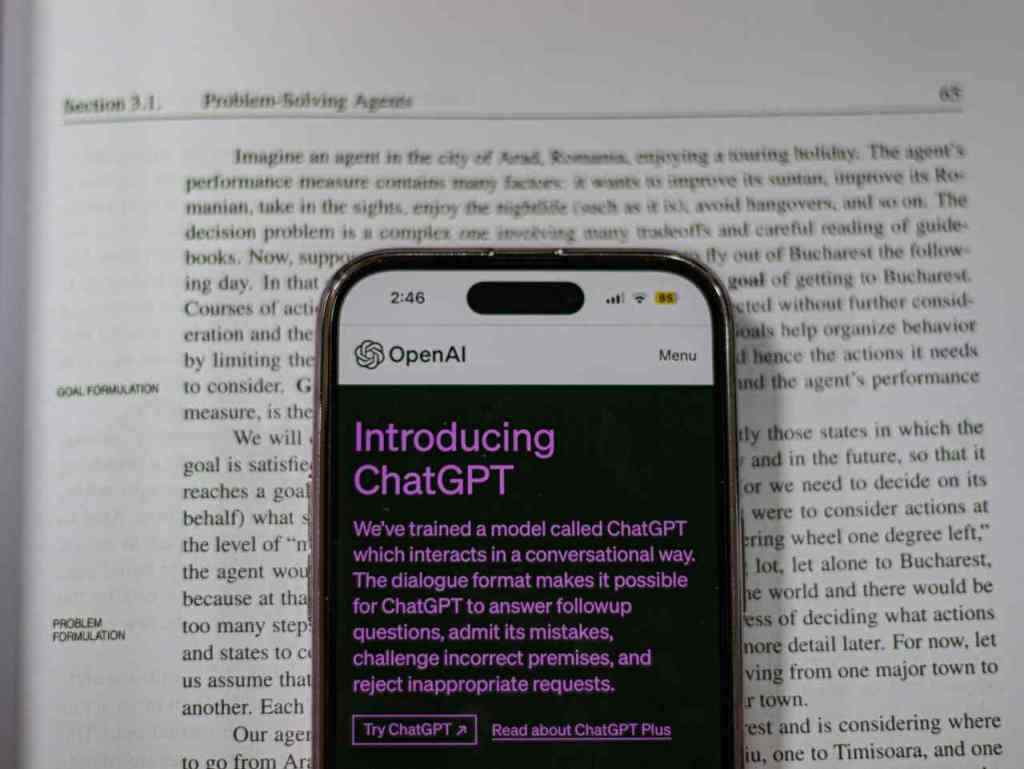ChatGPT Edu: OpenAI Targets Higher Education with New AI Platform
Hold onto your graduation caps, folks, because the world of academia is about to get a serious AI upgrade. OpenAI, the brains behind the revolutionary ChatGPT, just announced a game-changer: ChatGPT Edu. This specialized platform, set to launch in summer , is designed specifically for universities, promising to bring the power of AI to students and faculty alike…for free. That’s right, no tuition fees here!
Imagine a world where AI tutors are available / to help you cram for that impossible exam, grant writing assistance is just a click away, and your resume gets a professional polish, all thanks to the magic of artificial intelligence. That’s the future ChatGPT Edu is painting, and honestly? It sounds kinda lit.
Addressing Privacy Concerns: Because Nobody Wants Their Data Leaked
Now, before you start picturing a dystopian future where robots grade your essays and judge your every move (too late?), let’s talk privacy. We all know data is the new gold, and nobody wants their academic life splashed across the internet like a rogue Instagram story.
OpenAI seems to have gotten the memo. ChatGPT Edu will allow for personalized large language models, which basically means your data stays yours. Conversations and info shared within the platform won’t be used to train OpenAI’s public models. It’s like having your own private AI tutor who’s sworn to secrecy.
However, let’s not get ahead of ourselves. Concerns about data security and privacy are still swirling around these custom AI tools, and rightfully so. It’s a bit like jumping into a self-driving car – exciting, but you definitely want to make sure the brakes work first. Further investigation and a healthy dose of skepticism are definitely warranted.
Navigating the Rapid Pace of AI Development in Education: Hold On Tight!
The launch of ChatGPT Edu comes hot on the heels of GPT-o (Omni), OpenAI’s latest and greatest language model. It’s like trying to keep up with the Kardashians of the AI world – just when you think you’ve got a handle on things, BAM! New update.
Educators are understandably feeling the heat. The rapid-fire evolution of AI tools is making it tough to find stable ground. Just as you’ve finally convinced the faculty to try one thing, a newer, shinier AI toy comes along.
And as if juggling new tech wasn’t enough, there’s the added pressure of safeguarding student and faculty data. It’s a lot to process, and it highlights the need for clear guidelines, ethical considerations, and maybe a giant pause button to catch our collective breath.
Early Adoption and Collaboration: Universities Jump on the AI Bandwagon
Never ones to shy away from the cutting edge (unless it involves funding the humanities department), universities are diving headfirst into the ChatGPT Edu pool. OpenAI has already partnered with some big names for enterprise version trials, including Arizona State University, the University of Pennsylvania, the University of Oxford, and the University of Texas at Austin. Think of it as the academic version of the Avengers, but with less superhero spandex and more scholarly debates about algorithms.
These partnerships aren’t just about bragging rights. They’re providing crucial feedback and insights to help OpenAI fine-tune ChatGPT Edu. The focus is on creating secure, private workspaces within institutions, ensuring that all that valuable data stays on campus and out of the wrong hands. After all, nobody wants a repeat of the great library card data breach of ‘09.
Benefits and Applications of ChatGPT Edu: Beyond the Virtual Tutor
ChatGPT Edu isn’t just about making students’ lives easier (although let’s be real, that’s a major plus). The platform has the potential to revolutionize the way universities operate, from top to bottom. Imagine a world where departments can seamlessly share knowledge and collaborate on projects, all thanks to the power of AI. It’s like having a super-charged intranet that actually understands what you’re talking about.
Universities are already buzzing with ideas for how to utilize this new AI tool. From personalized learning experiences to streamlined research processes, the possibilities seem endless. OpenAI is encouraging proposals from both faculty and students, proving that when it comes to innovation, two (or a thousand) heads are definitely better than one.
And the best part? ChatGPT Edu is designed to be adaptable and accessible, regardless of a university’s technological prowess. So whether you’re a tech-savvy institution with more gadgets than a Silicon Valley startup or a smaller university still rocking overhead projectors (no judgment!), ChatGPT Edu has something to offer.
The Evolving Landscape of AI in Education and Beyond: Buckle Up, It’s Gonna Be a Wild Ride
The launch of ChatGPT Edu is just the tip of the iceberg. The world of AI is evolving faster than a teenager on TikTok, and the competition is fierce. Tech giants like Google and Microsoft are pouring billions into AI development, all vying for a piece of the educational pie. It’s enough to make your head spin faster than a gyroscope in a blender.
This rapid advancement raises some serious questions. Will the commercialization of AI lead to an “arms race” in education technology, where institutions feel pressured to adopt the latest and greatest tools, regardless of cost or ethical considerations? And what about the students caught in the middle of this digital revolution? Are we adequately preparing them for a future where AI is as ubiquitous as smartphones and avocado toast?
One thing’s for sure: digital literacy skills are no longer optional. Students and educators need the knowledge and critical thinking skills to navigate this evolving AI landscape. We need to teach them to question, to analyze, and to use these powerful tools responsibly. Because at the end of the day, AI should be enhancing education, not replacing the human connection and critical thinking that lie at its heart.
